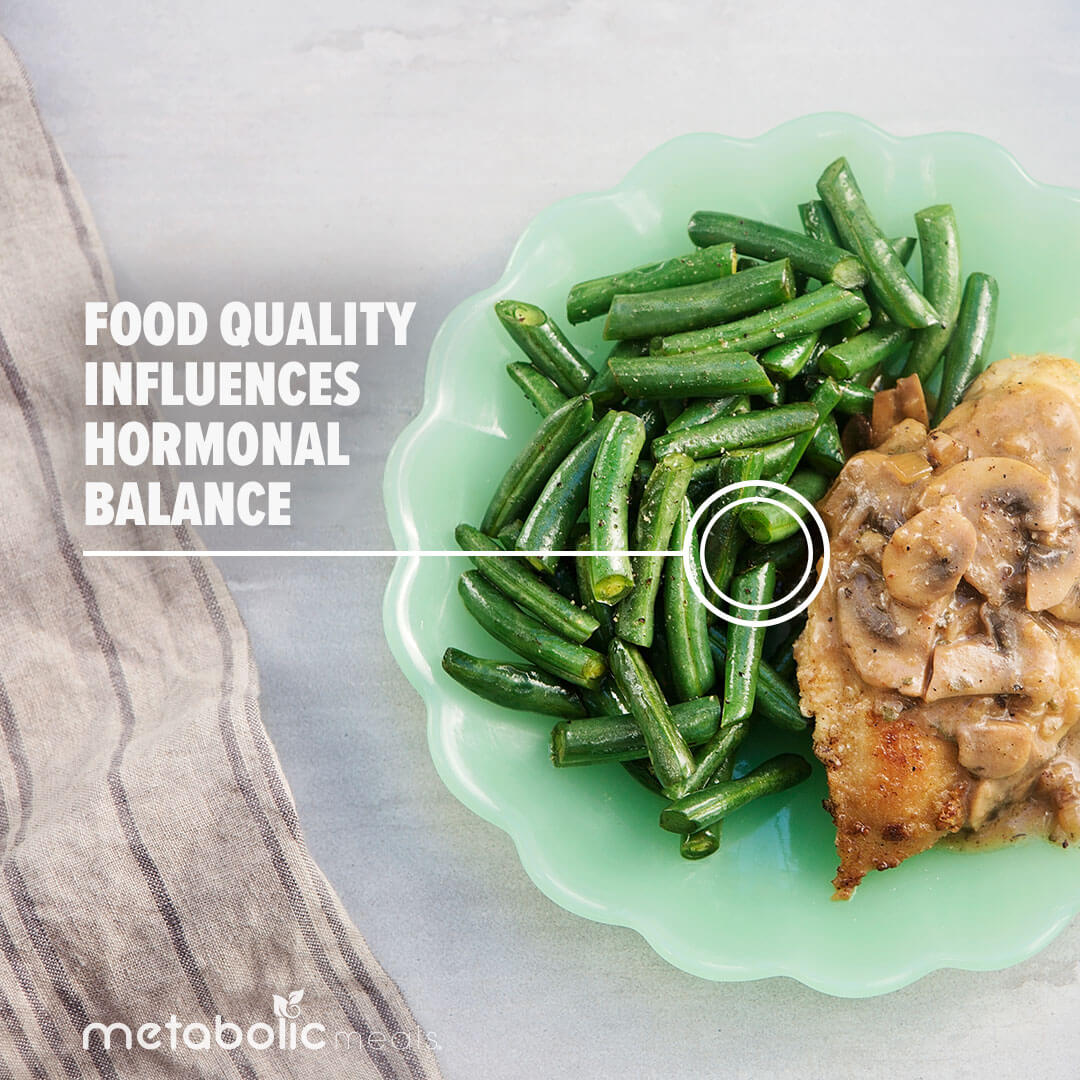ARTICLE AT A GLANCE
• The number of men and women who experience hormone imbalances is growing, and the symptoms are showing up earlier in life.
• The quality of the food we eat plays a significant role in hormonal function. Nutrients are important chemical messengers that dictate many of your body’s functions, including hormone release.
• Many foods that are often considered “healthy” can actually have a disruptive effect on hormones.
Hormones such as estrogen, testosterone, thyroid, cortisol, and insulin are invaluable chemical messengers that affect many aspects of your overall health. The glands and organs that make up the endocrine system, including the thyroid, adrenals, pituitary, ovaries, testicles, and pancreas, are in charge of secreting and controlling these hormones, and if just one part of this system is even slightly imbalanced, it can cause major health problems.
The scary thing is that such imbalances are much more common than we realize. Most women experience hormone imbalance at some point in their lives, either from their menstrual cycle, menopause, birth control, or a chronic illness such as diabetes.
And for men over the age of 20, growth hormone levels steadily decline every year. By age 40, about 10 million men in the U.S. have lost nearly half of the growth hormones they possessed in their 20s. Men are also 133 percent more likely to die if their body’s balance between estrogen and testosterone isn’t maintained, and low testosterone levels put men at risk for depression, obesity, insulin resistance, and other health issues.
The number of men and women who experience hormone imbalances is growing, and the symptoms are showing up earlier in life. These symptoms can include weight gain, fatigue, low libido, insomnia, depression, anxiety, and digestive issues, to name just a few. While there are several factors contributing to the phenomenon, the quality of food we eat plays one of the most significant roles.
What Does Food Have to Do With Hormones?

Chef-crafted meals optimized for health benefits.
Nutrients are important chemical messengers that dictate many of your body’s functions, including hormone release. For instance, eating a lot of carbs raises your blood sugar and prompts the release of insulin. Your body uses insulin to drive glucose into cells that convert it into energy, reducing your blood sugar levels to normal again.
The problem is that if insulin levels are elevated too frequently, your body needs to produce more of it to bring your blood sugar back to baseline levels. This is known as insulin resistance.
What makes hormone imbalances even more complex is that a discrepancy with one hormone can have a cascading effect. In the example above, increased insulin circulation can cause excess inflammation throughout your body and a spike in cortisol production.
Cortisol, known as the stress hormone, creates the fight-or-flight response necessary for survival. But when elevated for long periods of time, it causes adrenal fatigue, lowers thyroid function, increases blood pressure, and contributes to visceral fat formation. Left unchecked, the imbalance becomes a vicious cycle.
The quality of the food you consume also has a significant influence on hormonal balance. Meats and fish that are not raised on natural diets contain high levels of hormones, PCBs, and mercury. Produce and grains are sprayed with pesticides and fertilizers, and highly processed foods contain additives to extend their shelf lives.
All of these substances are endocrine disruptors, and their effects can be passed down genetically. In fact, in the “State of the Science of Endocrine Disrupting Chemicals” report, the World Health Organization and the United Nations Environment Programme suggested an outright ban on endocrine-disrupting chemicals to protect the health of future generations.
The 5 Biggest Food Culprits
and what you should eat instead
Your body needs the variety of short-, medium-, and long-chain fatty acids, including saturated fat and cholesterol, to create hormones and keep them in check. Different types of fat also help keep inflammation levels low, boost your metabolism, and promote weight loss. Good sources include avocados, grass-fed and/or free-range proteins, wild-caught salmon, and grass-fed butter.
These give you a proper balance of omega-3 to omega-6 fatty acids. A ratio of 4:1 will lower inflammation (the root cause of disease) and improve sensitivity to hormones to help maintain their balance.
On the other hand, a lot of foods that seem healthy are not as beneficial as they were once believed to be, largely due to their disruptive effect on hormone balance. Five of the biggest culprits today are:
1Farm-Raised Fish
Although seafood is typically a powerhouse of necessary nutrients and fatty acids, farm-raised fish are often high in PCBs and mercury, which are notorious endocrine disruptors.
Metabolic Meals Swap: Wild-Caught Cod and Corn Cakes with Roasted Root Vegetables is made from the highest-quality wild-caught cod from the northern Pacific.

2 Feedlot Cattle
High-quality protein is essential, but feed lot cattle are frequently given artificial growth hormones to increase their size. They’re also inundated with antibiotics to fight infection from eating an unnatural diet and living in poor conditions.
Metabolic Meals Swap: Pastrami-Style Grass-Fed Beef with Braised Red Cabbage – we only use grass-fed, pasture-raised beef in our kitchen.

3 Hydrogenated Vegetable Oils
These oils are high in omega-6 fatty acids and, therefore, disrupt the ratio of omega-3 to omega-6. This imbalance raises inflammation throughout the body.
Metabolic Meals Swap: Our Breakfast Hash is prepared with olive oil. We never use canola or soybean oil.

4 Sodas, Candies, and Baked Goods
While these are not typically considered healthy foods anyway, sodas, candies, and baked goods have exceptionally high levels of sugar that lead to insulin resistance and decreased thyroid output.
Metabolic Meals Swap: Our GO-PROtein Snack Pack with Wild-Caught Salmon Salad has no added sugar.

5 Soy
The phytoestrogens in soy mimic real estrogen and sit on the estrogen receptor sites of your cells. They block the hormone from entering and leaving the cells, forcing estrogen to wander through the bloodstream instead. Phytoestrogens affect the thyroid and suppress its function, and heavy consumption of soy influences fat gain, muscle loss, infertility, mood swings, and sexual dysfunction.
Metabolic Meals Swap: Our Paleo Egg Roll Bowl uses coconut aminos instead of soy sauce. All our meals are soy-free.

The importance of hormone balance isn’t a new discovery. But the influx of endocrine disruptors in our environment and food sources has led to significant jumps in chronic health issues. Be wary of foods promoted as healthy, and ask your doctor to routinely check your hormone levels during your medical checkups. If they’re imbalanced, it’s best to normalize them as soon as possible.






